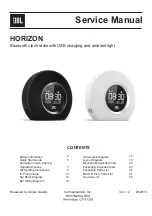
11
TK-880
■
“TOT” pre-alert
The transceiver has “TOT” pre-alert timer. This param-
eter selects the time at which the transceiver generates
“TOT” pre-alert tone before “TOT” is expired.
“TOT” will be expired when the selected time passes
from a TOT pre-alert tone.
■
“TOT” re-key time
The transceiver has “TOT” re-key timer. This timer is the
time you can not transmit after “TOT” exceeded. After
“TOT” re-key time expired you can transmit again.
■
“TOT” reset time
The transceiver has “TOT” reset timer. This timer is the
minimum wait time allowed during a transmission that will
reset the “TOT” count.
“TOT” reset time causes the “TOT” to continue even
after PTT is released unless the “TOT” reset timer has ex-
pired.
■
OST (Operator Selectable Tone)
The transceiver is capable to have “OST” function and 16
tone pair (QT/DQT) with max 10-digit name for each tone
pair.
• “OST” back up
The transceiver is programmable the selected “OST”
code is memorized or not. If you set to Disable (no memo-
rized), the “OST” function always starts at “off”.
■
Clear to transpond
The transceiver waits the transpond of 5-tone/2-tone /
DTMF if channel is busy until channel open. This feature
prevents the interference to other party.
5. Option Signalling (DTMF/2-Tone)
Built-in DTMF decoder is available for option signalling.
Built-in 2-tone decoder is available for option signalling.
It is possible to use individual call, group call, stun, kill.
Stun and kill are used with DTMF only.
If the option signalling matches, a predetermined action
will occur.
If option signalling matches on a group/channel which is
set up with option signalling, the option signalling indicator
(
*
) will flash and option signalling will be released. The
transpond or alert tone will sound.
If the selective call alert LED is set up, the orange LED
will flash.
While option signalling matches (or if option signalling is
deactivated when you are transmitting), you can mute or
unmute ID/QT/DQT/Carrier.
OPERATING FEATURES
■
AND/OR
Option signalling match conditions can be selected with
AND/OR logic.
Alert/Transpond
AND
Triggers at match with QT/DQT/ID+DTMF (2-tone); Both
OR
Triggers only for match with DTMF (2-tone); Option
AF mute open
AND
Triggers at match with QT/DQT/ID+DTMF (2-tone); Both
OR
Triggers only for match with QT/DQT/ID; Signalling
Even if set for OR, AF mute cannot be canceled just by a
match with DTMF.
In channels not set with QT/DQT, signalling is a match
just by rceiving the carrier.
■
Auto Reset
If option signalling matches a group set up with option
signalling, option signalling is released. After matching op-
tion signalling, option signalling will temporarily reset auto-
matically.
■
Stun/Kill
If the stun code matches, a predetermined action will
occur. Whether option signalling is activated or not, when
stun code matches on any channel, the transceiver will be-
come stun or kill.
While stun is active (“LOCK2” appears), if the stun code
+ “#” code is received, stun will disactive. While kill is ac-
tive (“ERROR” appears), the transceiver will be disable all
functions. The transceiver must be reprogrammed by the
FPU (KPG-60D) to operation again.
6. Alphanumeric Two-way Paging Function
(Digital Message System : DMS)
■
General
The Alphanumeric Two-way Paging Function (DMS) is a
Kenwood proprietary protocol. It enables a variety of paging
functions.
■
ID Construction
A radio unit ID is defined by a combination of 3-digit Fleet
and 4-digit ID numbers. Each radio unit must be assigned its
own Fleet and ID numbers.
■
PTT ID
A pre-programmed unique ID can be sent at the begin-
ning of transmission and/or the end of transmission to iden-
tify which radio unit is on air.












































